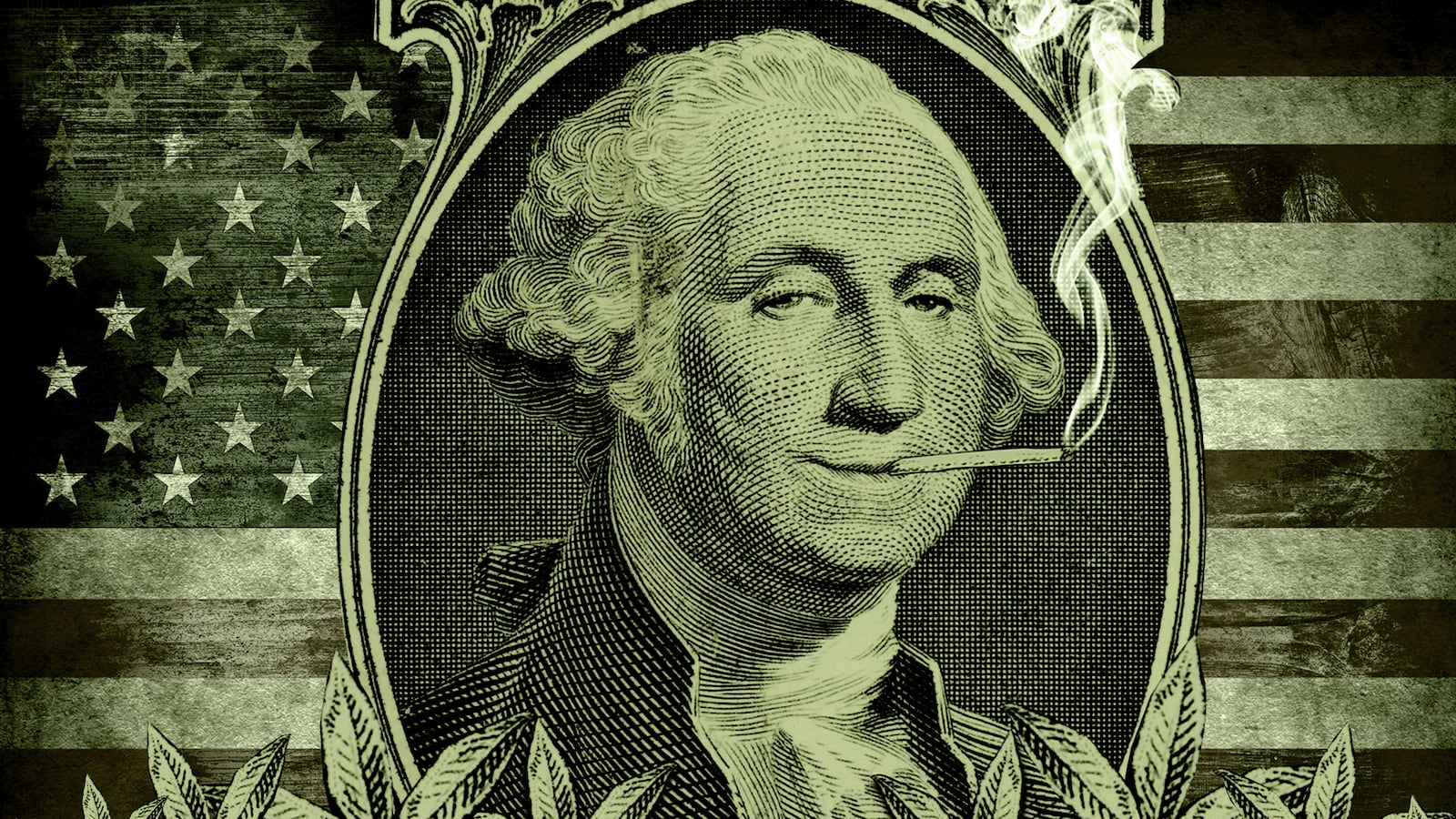While most Republicans hate the idea of legalizing weed, they say they hate federal government interference even more. That’s why some Republican governors are at a loss for words as to why the White House is threatening to send federal officers to arrest their local marijuana business owners.
This weekend 46 of the nation’s governors were in the nation’s capital to get facetime with the president, vice president, cabinet members, and lobbyists—in their predictably pressed suits—who teamed about the JW Marriott’s ballrooms; mere blocks from the White House.
The White House’s new position—that the Justice Department plans to come down on recreational pot in the eight states and the District of Columbia that have all completely legalized weed—has especially put the four Republican governors who represent half of those states in a quandary.
It was on full display this weekend.
“I’m doing a story on marijuana policy,” I asked former Republican and now Independent Alaska Gov. Bill Walker. “What do you think of Attorney General Sessions and the White House saying that they want to hold states like Alaska to the federal standard on recreational marijuana but not medicinal?”
“Our attorney general, Jahna Lindemuth, she spoke with Associated Press just on that yesterday,” Grace Jang, his spokeswoman interjected.
Turning to the governor, I asked, “But don’t you have any thoughts on that?”
“I have some thoughts,” Walker briefly intoned. “I try not to get ahead of my attorney general, it’s a legal issue. Eight states have that now so we’re not the only ones out there, so she’s the best one to talk to about that.”
I emailed Jang who the governor told to put me in touch with his attorney general. Crickets.
I tried to ask Massachusetts Republican Gov. Charlie Baker about pot, but he and his press handlers cut me off.
The GOP used to be the state’s rights party. Just a few months ago, even the idea of federal intrusion on a legal business owner would have been anathema. Not anymore.
It seems Republican governors are bracing for the new reality of having Trump in White House—even his fellow party members don’t know how he’ll yield the vast federal powers now at his disposal.
As the Trump administration picks its battles, some Republican governors don’t love that the new attorney general, Jeff Sessions, seems to oppose their local voters who want looser, not more stringent, pot policy, but they seem to be at a loss for words.
“I suppose we just have to see how it rolls out, no pun intended,” Gov. Brian Sandoval (R-NV) quipped to The Daily Beast. “So let’s put this a different way, I want to see the details to what the administration is talking about.”
The former federal judge added, “The more important question will be what the Department of Justice does.”
That’s the question hanging over the cannabis industry head. And because Congress has failed to address the discrepancy, except for passing a bill that prohibits federal forces from going after medicinal marijuana dealers, federal policy remains at opposition to what’s happening in red and blue states alike, which is why Sandoval said the Feds seem to have broad discretion.
“You’ve got a 10th Amendment argument but you’ve got a supremacy clause question,” Sandoval said. “And then I don’t know how you distinguish between medical and recreational, at least based on a federal law enforcement perspective, at least as the law is written now.”
But then there’s the whole money issue. States are now making money by taxing weed.
“No absolutely, there’s no doubt,” Sandoval said, who expects to send his education department about $30 million a year from weed money. “It is extra money. But it is. And it’s important to me to continue the quality of education. And you know that’s something they’ve done in Colorado, something they’ve done in Washington, something they’ve done in Oregon.”
Over in Colorado, Democratic Gov. John Hickenlooper opposed legalizing weed, but his state is now reaping about $140 million annually from pot taxes. He still isn’t a fan of pot, but he argued his state is a test case.
“But I think if this works, we will have some revenues to address some of the consequences of drug use—so mental health, addiction counseling, those kinds of things,” he told The Daily Beast.
“Making sure that for those people that fall off the tracks if we can have supportive housing available to them. I mean those are hard things to get tax money for in normal circumstances and it’s fair to say there are unintended consequences of drug use in the majority of cases so in that sense it is useful but it’s not going to pay for education or early childhood education or any of the other needs of society,” he continued.
Arkansas Gov. Asa Hutchinson, former head of the Drug Enforcement Agency (commonly known as those dudes knocking down doors with D-E-A emblazoned in bright yellow on their bulletproof vests), signed a bill to legalize medical marijuana last year.
“Governing is not about,” the former DEA chief said before stopping himself mid-thought and pivoting to the fact he now has to put in place a medical marijuana plan that he not only opposes, but ran against and helped prosecute while the nation’s chief anti-pot activist. “Governing is not about—it’s about implementing the voters will and doing it in a responsible way and that’s what we’re engaged in.”
While Hutchinson’s never been a fan of marijuana, he’s now charged with heading a state whose voters rejected his prohibitionist position and ushered in a new style of Southern living by approving medical marijuana.
While Hutchinson’s constituents forced hand with medicinal marijuana, he says the patchwork of mismatched state laws—which most Republicans formerly called “Federalism”—is unworkable.
“Well it is a massive conflict. So you either have to change state law or you change federal law, and right now Congress has not changed federal law,” Hutchinson told The Daily Beast.
“So you know it’s a decision that both the Justice Department and Congress have to make, and we as a nation, as to whether we want recreational marijuana—legalization of marijuana nationwide,” he added. “I think it’s too late to turn back to the clock on medical marijuana, but recreational use is still in debate.”





